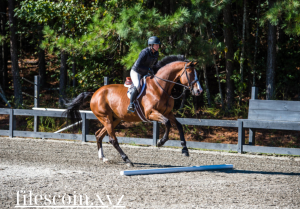Breeding horses is both an art and a science that requires a deep understanding of genetics, physiology, and equine management. For breeders aiming to produce superior horses—whether for racing, show jumping, dressage, or other disciplines—employing advanced breeding techniques is essential. This guide explores high-end horse breeding methods that can enhance genetic quality, improve reproductive success, and ultimately lead to superior breeding results.
1. Genetic Testing and Selection
a. DNA Profiling
Utilizing DNA profiling allows breeders to identify specific genetic markers associated with desirable traits such as speed, stamina, temperament, and conformation. By analyzing a horse’s genetic makeup, breeders can make informed decisions about mating pairs to maximize the potential for offspring with superior qualities.
b. Genetic Disease Screening
Screening for hereditary diseases like Hyperkalemic Periodic Paralysis (HYPP), Polysaccharide Storage Myopathy (PSSM), and others ensures that carriers are identified and managed appropriately. This reduces the risk of passing on genetic disorders to future generations, promoting healthier and more robust offspring.
2. Advanced Reproductive Technologies
a. Artificial Insemination (AI)
Artificial insemination allows breeders to use semen from stallions worldwide without transporting the animals. It reduces the risk of injury and disease transmission and enables the use of semen from stallions that may not be available for live cover.
b. Embryo Transfer
Embryo transfer involves collecting a fertilized embryo from a donor mare and implanting it into a recipient mare. This technique allows valuable mares to produce multiple foals in a single breeding season while continuing their performance careers.
c. Intracytoplasmic Sperm Injection (ICSI)
ICSI is a micromanipulation technique where a single sperm is injected directly into an egg. This method is beneficial for stallions with low sperm counts or poor semen quality and allows for the use of limited or precious genetic material.
d. Cloning
While controversial and subject to ethical considerations, cloning can replicate elite horses, preserving exceptional genetics. Cloned horses can contribute to breeding programs, although they are typically not allowed in competitive events.
3. Hormonal Management
a. Estrus Synchronization
By using hormonal treatments, breeders can synchronize the estrous cycles of mares to align breeding schedules. This technique facilitates timed breeding and embryo transfer programs, increasing efficiency.
b. Inducing Ovulation
Administering hormones like Human Chorionic Gonadotropin (hCG) or Gonadotropin-Releasing Hormone (GnRH) analogs can induce ovulation, allowing precise timing for insemination and improving conception rates.
4. Nutritional Optimization
Proper nutrition is vital for reproductive success. High-end breeding programs invest in tailored nutritional plans for both stallions and mares.
- Mares: Adequate intake of energy, protein, vitamins, and minerals supports fetal development and milk production.
- Stallions: Optimal nutrition enhances semen quality and libido. Antioxidants like Vitamin E and selenium can improve sperm motility and viability.
5. Advanced Semen Processing and Storage
a. Semen Cryopreservation
Freezing semen allows for long-term storage and global distribution. Advanced freezing techniques preserve sperm viability, enabling the use of genetic material from deceased or retired stallions.
b. Semen Sexing
Semen sexing technology separates sperm cells based on the sex chromosome they carry. This allows breeders to select the desired gender of the offspring, which can be advantageous in certain disciplines.
6. Health Management and Biosecurity
Maintaining the highest health standards ensures that breeding stock remains fertile and disease-free.
- Regular Veterinary Care: Routine health checks, vaccinations, and deworming programs are essential.
- Biosecurity Measures: Implementing strict biosecurity protocols minimizes the risk of infectious diseases spreading within breeding facilities.
7. Use of Data and Breeding Software
Modern breeders utilize specialized software and databases to track pedigrees, performance records, and genetic information.
- Pedigree Analysis: Software helps analyze lineage to avoid inbreeding and identify optimal mating pairs.
- Performance Data: Integrating performance metrics allows breeders to select horses that consistently produce successful offspring.
8. Environmental Management
Creating an optimal environment supports reproductive efficiency.
- Light Therapy: Extending daylight hours with artificial lighting can stimulate reproductive activity in mares during the off-season.
- Stress Reduction: Minimizing stress through proper housing, handling, and socialization enhances reproductive success.
9. Collaboration with Equine Reproductive Specialists
Working with veterinarians and reproductive experts ensures access to the latest techniques and technologies.
- Reproductive Evaluations: Regular assessments of stallions and mares can identify potential issues early.
- Customized Breeding Plans: Specialists can develop tailored strategies to maximize breeding outcomes.
10. Ethical Considerations and Best Practices
High-end breeding should adhere to ethical standards to promote the welfare of the animals.
- Responsible Breeding: Prioritizing the health and well-being of horses over commercial interests.
- Regulatory Compliance: Abiding by international and local regulations governing breeding practices, including the use of certain technologies.
Conclusion
Advanced horse breeding techniques offer unparalleled opportunities to enhance genetic quality and achieve superior breeding results. By integrating modern technologies with traditional breeding knowledge, breeders can produce exceptional horses that excel in their respective disciplines. Success in high-end horse breeding requires a commitment to continuous learning, ethical practices, and collaboration with experts in the field.



